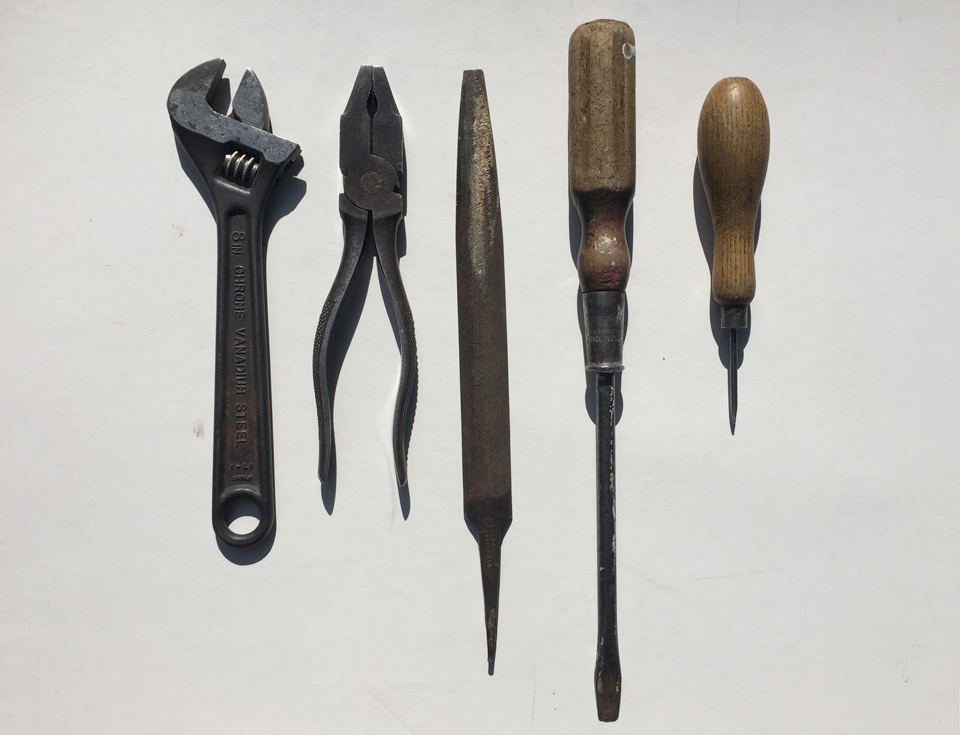
My father, John Lisle Foster, was born one hundred years ago today, 22 May 1922, in what was then Blantyre, Nyasaland (now Malawi). He was the older of the two sons of Lionel Hubert Lisle Foster, a District Commissioner in the British colonial service, and his wife Judith Mary (née Sandberg).
Like many children of the colonial service, he spent most of his early schooldays in England, not seeing his parents for a year or more. He and his younger brother Humphrey were shipped from Africa to England, boarding at a prep school during term time and then going to a relative’s home for the holidays. It is hard to believe now, but it what was expected at the time. He was sent to King’s College choir school in Cambridge at the age of eight or so. As a result, although he was not a chorister he always had a good singing voice. In later life this could be heard at church services, his consonants being pronounced distinctly in the way he had been coached in childhood.
He must have expressed an interest in science and engineering because he won this book, the interestingly named Romance of Modern Engineering, as a school prize for Mathematics when he was 13.
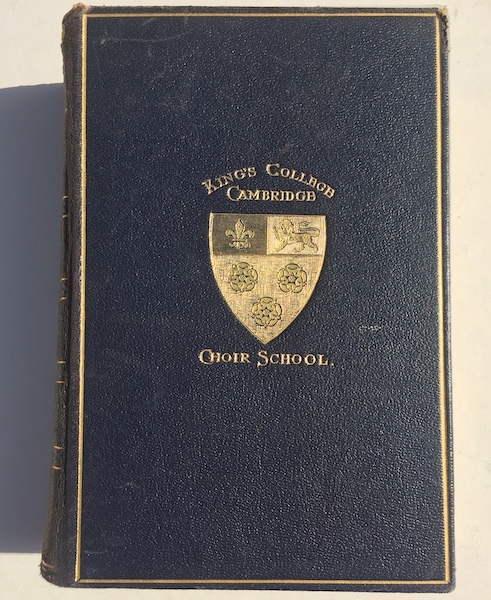
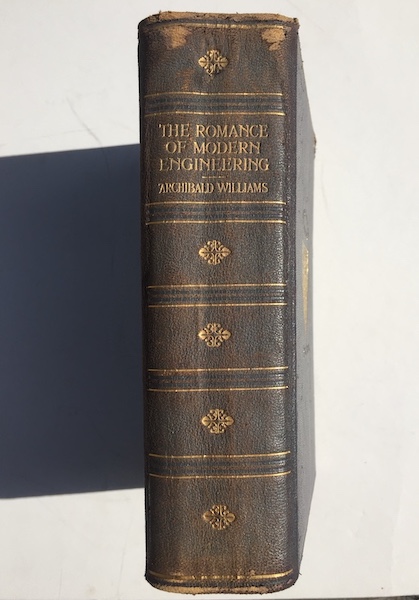
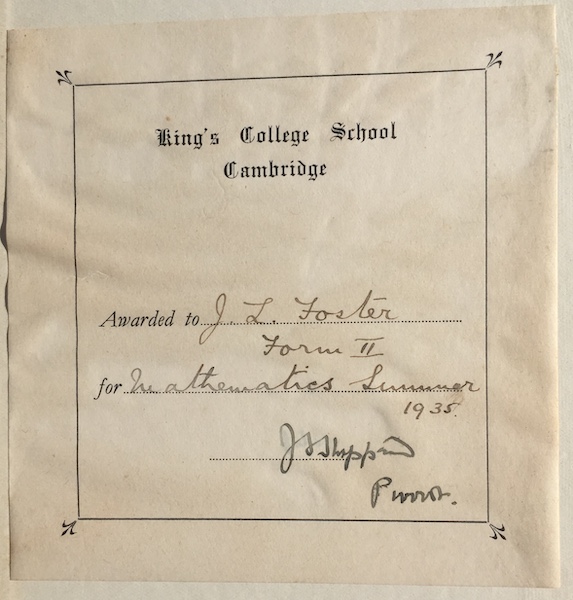
He went to the Royal Naval College at Dartmouth, in either the autumn of 1935 or early in 1936. I’m not sure which date is correct, but I know that he was in the St Vincent term, as he wore his term’s tie all his civilian life. At this time, Dartmouth acted as a school for boys who were destined to be navy officers. As he was still 17 when the war started in September 1939, he must then still have been at Dartmouth. In due course, he went on to the Royal Naval Engineering College at Keyham in Plymouth, where the war had meant that the course was accelerated in order to get the training done as fast as possible. After being commissioned as a Sub Lieutenant (E) in January 1943, his first posting was to HMS Ceylon.
The process of attrition for Royal Navy officers may not have been as severe as it was for their brethren in the RAF, but it was galling enough, and many of his Dartmouth colleagues fell in the war. One was on HMS Hood, sunk by the Bismarck in 1941, another lost a leg on HMS Penelope in 1944. Dad, however, saw out the war on a series of heavy cruisers and battleships.
After the war, he served in a series of ships, mainly in the Mediterranean fleet based in Malta, and on shore in Rosyth and Plymouth. Having met in Hastings, he and my mother were married there in 1948. I was born in Malta in 1950 and my four brothers and sisters in Plymouth between 1952 and 1956.
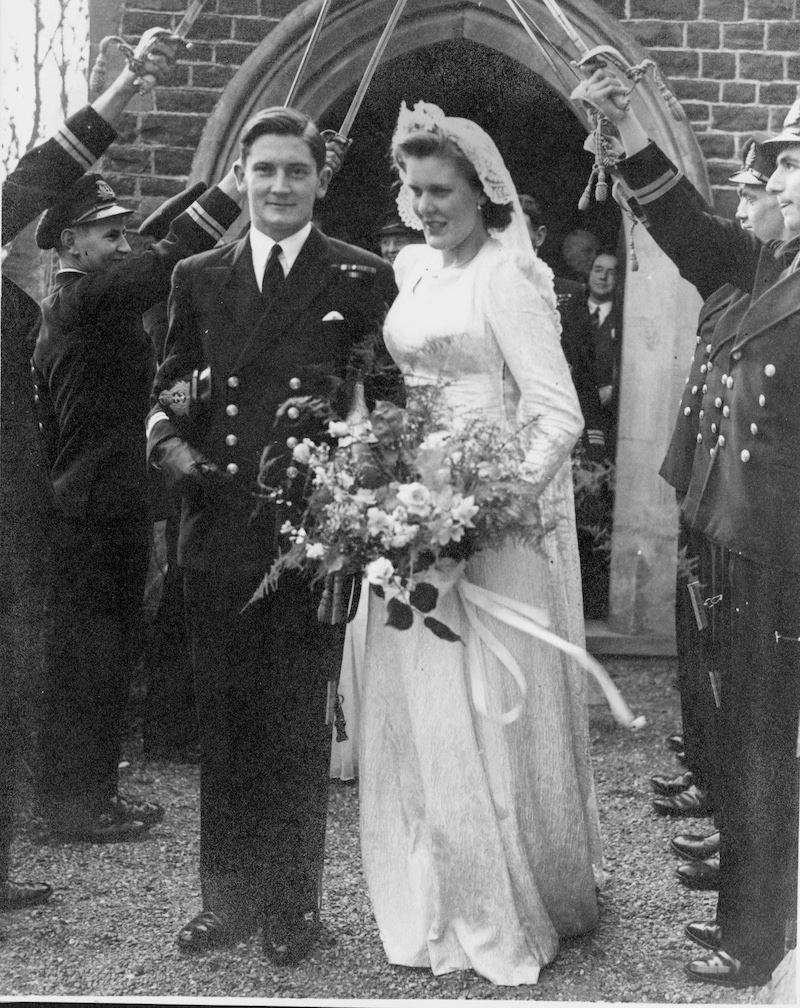
By 1958, the war had been over for more than a decade and the services were contracting. Officers in their mid-thirties were offered a “golden bowler”, a lump sum and a pension for life. Dad took the offer, and we moved as a family to Gerrards Cross, within commuting distance of the Guinness brewery in Park Royal, west London, where he got a job. He joined an engineering department which seemed to be full of ex-service personnel – the chief engineer had been a Brigadier in the sappers. Guinness was only the second employer he ever had, and he would stay there for almost thirty more years, retiring in about 1984.
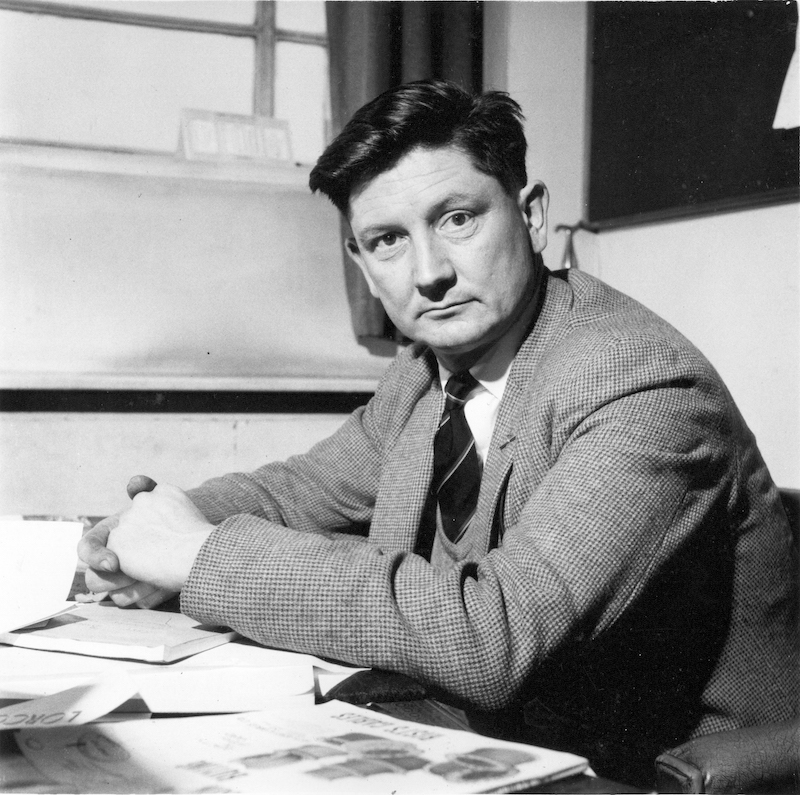
Dad behind his desk at Guinness in a photograph taken for a staff magazine.
He was an old-fashioned engineer, a dab hand at calculating with a slide rule or log tables. He wasn’t really big into DIY but he had a few tools, some of which he passed on to me when I left home in the 1970s. The big screwdriver shown in the picture at the top of this article had, he told me, actually come from his own father so it could itself be 80 or 90 years old.
I love these old tools. They have a heft and a feel which demands respect. I’ve inherited a few things from both my parents, but these working implements are amongst the most prized. And I will look at them with pride and affection today, as I salute a father who, sadly, never got to his own century.
John Lisle Foster, officer, gentleman and engineer, 22 May 1922– 25 May 2002.
ADDENDUM: My brother Andrew, who has Dad’s old toolbox, has sent me this photo.
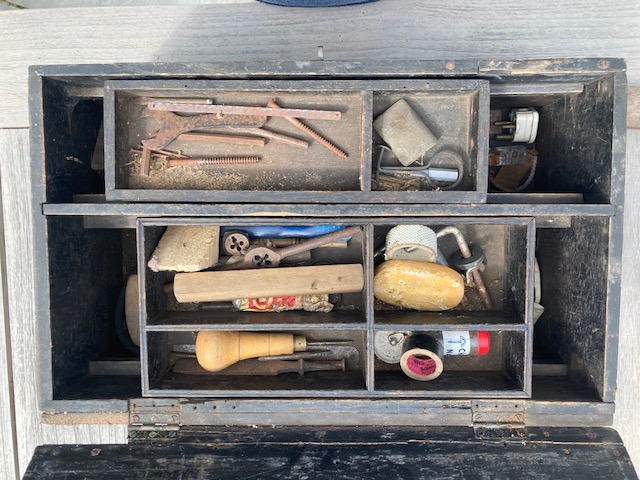
Most of the stuff it contains hasn’t been used for years, although Andrew has a ratchet screwdriver which occasionally comes in handy. I like the block of soap he must have used for easing screws into very hard blocks of wood (you can still see the grooves, apparently) and the old style round pin plug.
Co incidentally my father was born about one month later, same year. He became an electrical engineer in the Netherlands, and was an ‘onderduiker’ (Dutch Resistance) during WW2. Your story struck a chord in me, due to the similarities in times while still being totally different.
A coincidence indeed, Rita! It must have been a dangerous time being in the resistance, and I’m glad that your father came through it OK. Best wishes.